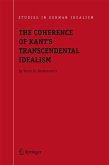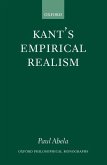What are the causes of our actions? How do we act with free will? What makes an action virtuous? What is a good will? Richard McCarty presents controversial and carefully argued answers to these questions, based on the theory of action that underlies Kant's ethics, considered in its historical context.
Readership: Advanced students and scholars of philosophy.
The theory of action underlying Immanuel Kant's ethical theory is the subject of this book. What 'maxims' are, and how we act on maxims, are explained here in light of both the historical context of Kant's thought, and his classroom lectures on psychology and ethics. Arguing against the current of much recent scholarship, Richard McCarty makes a strong case for interpreting Kant as having embraced psychological determinism, a version of the 'belief-desire model' of human motivation,
and a literal, 'two-worlds' metaphysics. On this interpretation, actions in the sensible world are always effects of prior psychological causes. Their explaining causal laws are the maxims of agents' characters. And agents act freely if, acting also in an intelligible world, what they do there
results in their having the characters they have here, in the sensible world. McCarty additionally shows how this interpretation is fruitful for solving familiar problems perennially plaguing Kant's moral psychology.
Readership: Advanced students and scholars of philosophy.
The theory of action underlying Immanuel Kant's ethical theory is the subject of this book. What 'maxims' are, and how we act on maxims, are explained here in light of both the historical context of Kant's thought, and his classroom lectures on psychology and ethics. Arguing against the current of much recent scholarship, Richard McCarty makes a strong case for interpreting Kant as having embraced psychological determinism, a version of the 'belief-desire model' of human motivation,
and a literal, 'two-worlds' metaphysics. On this interpretation, actions in the sensible world are always effects of prior psychological causes. Their explaining causal laws are the maxims of agents' characters. And agents act freely if, acting also in an intelligible world, what they do there
results in their having the characters they have here, in the sensible world. McCarty additionally shows how this interpretation is fruitful for solving familiar problems perennially plaguing Kant's moral psychology.








